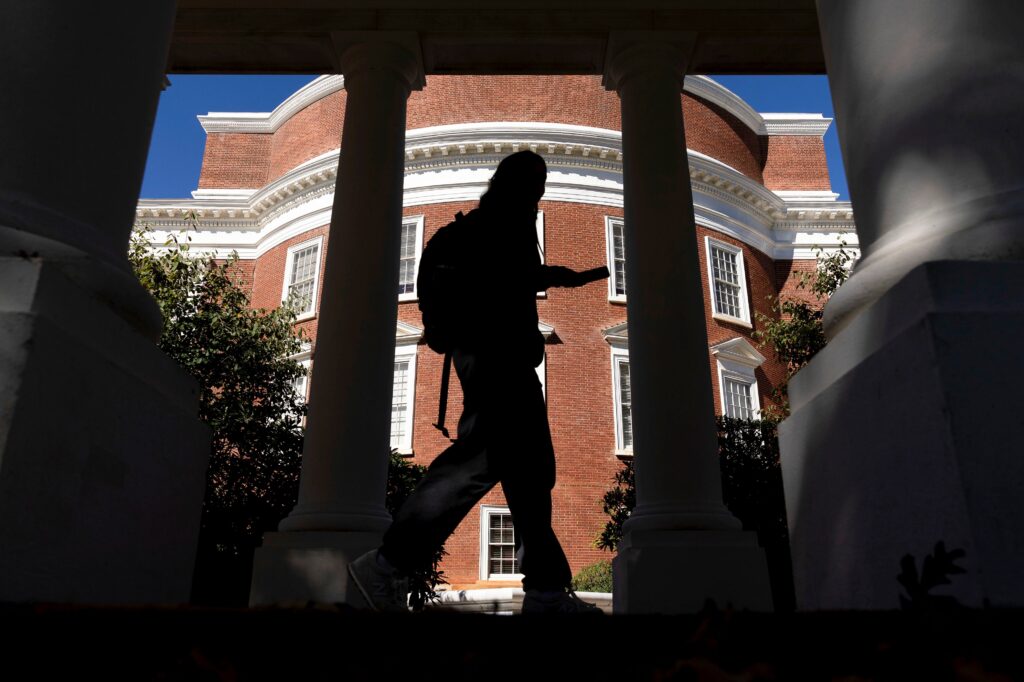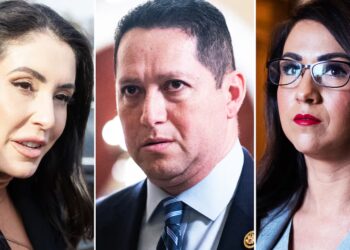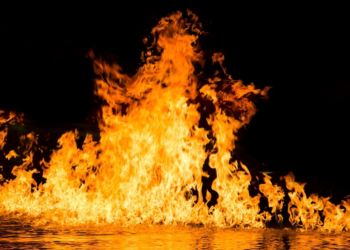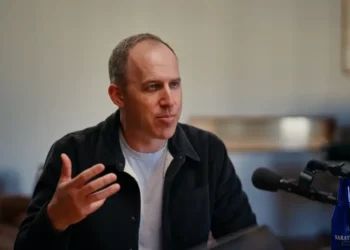The reporting in the Nov. 15 Metro article “Ex-head of U-Va. details ouster,” about the resignation of University of Virginia President James E. Ryan, should alarm anyone who values academic freedom. U-Va. is not only a public institution; it is also Thomas Jefferson’s university, founded explicitly to keep the pursuit of knowledge free from political and religious interference.
If the Justice Department applied pressure for Ryan’s removal, that represents a profound overreach. It risks establishing a precedent whereby university leadership can be reshaped at the will of political actors. Such interference does not strengthen higher education. It endangers it.
U-Va. has stood for more than two centuries as a symbol of intellectual courage and democratic resilience. It will outlast this moment. But we should not ignore the warning this episode offers: A democracy that allows its universities to be bullied by political forces is already in peril.
Antoinette Kahan, Virginia Beach
The Nov. 18 editorial “The University of Virginia’s campus crackup” argued that “using the federal government to extract personnel or financial concessions from universities often causes more trouble than it’s worth.” That blinkered statement implied that such federal intervention is legitimate, just too bothersome to pursue. It ignored fundamental principles at stake, including the constitutional right to freedom of speech and the legal mandate to spend money authorized by Congress. These principles should be resolutely defended.
Yes, U-Va. and all universities should comply with federal law, as the Editorial Board also argued, but Gov.-elect Abigail Spanberger (D) is correct to advocate a pause in the search for a new president until there is a fully constituted Board of Visitors composed of members dedicated to pursuing the best interests of the university.
Paul Kingston, Charlottesville
The writer is a professor emeritus of sociology at the University of Virginia.
In reading Robert Fulghum’s “All I Really Need to Know I learned in Kindergarten,” we’re reminded of what’s most important: civility, decency, respect, doing what’s right and telling the truth.
U-Va. President James E. Ryan’s recent letter to the faculty senate conveyed openness, goodness and generosity, even during difficult times; for example, he referenced efforts to recruit qualified first-generation applicants from rural areas of Virginia, and ensure they are offered a decent chance to enter the university.
The article noted that this spring, as Ryan considered the university’s options, some board members left him out of conversations with the federal government. This was not the spirit of Thomas Jefferson or of welcoming varying viewpoints and thoughtful discussion.
Given the lack of information, of transparency, of truth, we must encourage the university to fight for decency and fairness. Even while risking federal benefits, there’s nothing more beneficial than fighting for what’s right.
Peter Kleppinger McLean, Charlottesville
Berkeley is politically diverse
I was deeply saddened to read Andrew Doyle’s Nov. 14 op-ed, “The post-Charlie Kirk ugliness on display at Berkeley.” He concluded: “My experiences at Berkeley left me feeling a sense of hopelessness, that we are dealing here with a form of hysteria that might never be quelled.”
The violence and the gloating over the assassination of Kirk shock and offend people across the political spectrum, not just conservatives. This behavior is especially troubling at the University of California at Berkeley, home of the Free Speech Movement (though many of the protesters at the Turning Point USA event were not UC Berkeley students).
I teach political science at UC Berkeley, and this semester my “Art of Resistance” course spent two weeks examining conservative resistance to cancel culture within the broader tradition of dissidence, giving students a nonpartisan framework for understanding repression and resistance. I typically conclude the semester with a few chapters from my current book project.
I would like to invite Doyle to visit the class this semester. We would read his latest work and dedicate that seminar entirely to engaging in what I’m confident will be a respectful yet philosophically rigorous discussion of his work.
No one should leave Berkeley feeling hopeless, and I’m certain actual intellectual engagement with Berkeley students would elicit the very opposite. Our students are far more politically diverse than the image most people have of them.
Desmond Jagmohan, Berkeley, California
Getting technical
George F. Will wrote about changing opinions regarding allowing immigration to solve labor shortages in his Nov. 9 op-ed, “Immigration reform needs reframing asap.” I agreed with his argument but took issue with the characterization of certain jobs, such as domestic helpers, cleaners, waiters, car-wash attendants and meatpackers, as “low skill.” All these jobs require learned skills of specific types to enable their quick and reproducible achievement. I propose that we instead characterize these occupations as “nontechnical.”
Chuck Selden, Silver Spring
The post U-Va. should adhere to Thomas Jefferson’s principles appeared first on Washington Post.




